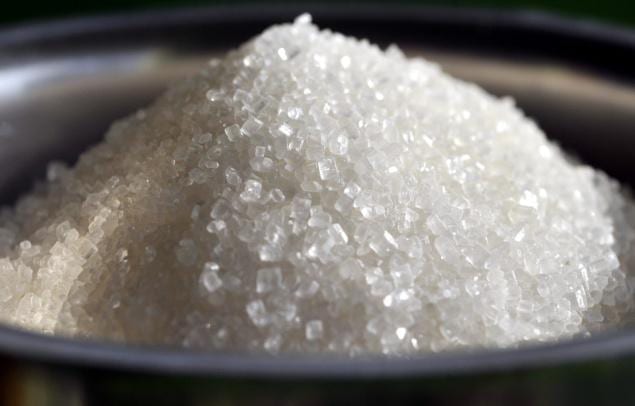What would you do if you found out that the vitamins you give your child that are designed to make up for nutritional deficiencies and protect your baby’s health are loaded with sugar, dyes, chemicals, toxins and other unwanted ingredients? Don’t be surprised: you yourself may be consuming more sugar than you think. After all, sugar is hidden everywhere – from salad dressings to yoghurts “with natural fruit fillers.” It is found in energy bars, fruit juices, ketchup, breakfast cereals, sausages, and other industrially processed foods. And you can be misled by the fact that there are more than 70 code names for sugar, making it easy to confuse it with something else, harmless.
Pediatric dentists have noted an increased incidence of tooth decay in very young children, and some suspect sugary chewable vitamins may be the culprit, which traps sugar between the teeth.
Flossing and good oral hygiene can help eliminate interdental sugar, but this is only part of the solution because when you eat sugar, the acid-base balance in your mouth is compromised. This, in turn, provokes the formation of an acidic environment in the mouth, and it is favorable for the multiplication of pathogenic bacteria that produce foods that destroy tooth enamel.
Excess sugar problem
We all eat too much sweets – certainly more than the recommended six teaspoons of added sugar per day for women, nine for men, and three for children (American Heart Association guidelines). As a consequence, obesity is spiraling out of control, and this also applies to children: over the past 30 years, it has become more common, putting children at risk of developing many “adult” diseases, such as type II diabetes mellitus, high cholesterol and heart disease. vascular diseases. There is also an increase in the development of non-alcoholic obesity of the liver in children. And this applies not only to America, but also to European countries and Russia.
Sugar is often used to make certain foods more desirable for children who have tasted the sweet taste and want it again.
School, stress, germs and sugar
School-free years are behind me, and my child has been going to school every day for two months, full of other children (coughing, sneezing and blowing their nose), with intense stress and new emotions. All this is a great stress for his body. And stress, as you know, weakens the immune system.
In addition, I am no longer able to control my child’s nutrition as strictly as before, because now he is out of my field of vision for six hours a day. But the diet directly affects the immune system. And sugar lowers it!
Phagocytes – the cells that protect us from harmful bacteria and other foreign substances – are an important part of the immune system. The American Journal of Clinical Nutrition has published evidence that sugar decreases phagocytic activity.
First, sugar is linked to chronic inflammation, which is responsible for many diseases. It increases the risk of dying from cardiovascular disease, according to a Harvard Medical School finding.
Secondly, sugar disrupts the balance of good and bad bacteria in our body, provokes a decrease in immunity and can cause colds and flu-like symptoms in children, including coughs, sore throats, sinus infections, allergies and other respiratory diseases.
A year ago, I had no idea that sugar and sweets would become my main enemy and that I would have to develop strategies on how to minimize its amount in the life of my beloved son. Now I spend a lot of time on this fight. Here’s what I can recommend to those who, like me, are concerned about the problem of excessive sugar in a child’s life.
Healthy habits at home – healthy children:
- Make sure your child is eating as much as possible, eating enough fresh vegetables, and getting regular physical activity.
- Cut out sugar as much as possible, set rules, for example, no more than 2 sweets a day and only after meals.
- Read labels carefully, understand all the names of sugar.
- Be aware of the hidden sugar found in foods that are not sweet at all.
- Don’t believe advertising slogans like “natural”, “eco”, “sugar free”, check the labels.
- Try to replace industrially produced candies, cookies, and muffins with homemade ones that you can control.
- Try to satisfy your child’s sweet needs with fruits.
- Minimize the amount of processed foods in your home and diet. Make breakfast, lunch, and dinner with whole plants, fish, and meat, rather than the contents of bags, jars, and boxes.
- Carry out a daily propaganda, telling your child that too much sweets will hinder success in your favorite business.
- If possible, send your child to school / kindergarten with homemade food.










